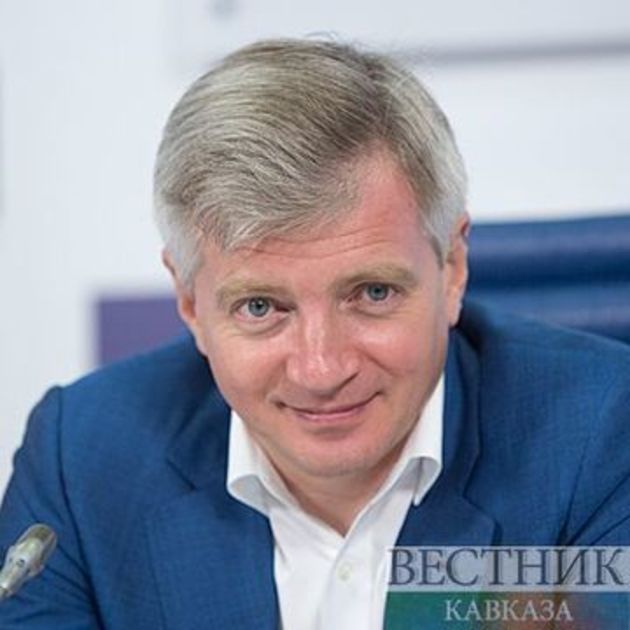The other day, in the Azerbaijani capital, the head of the Department of Culture of Moscow Alexander Kibovsky and the head of the Main Department of Culture of Baku Jalil Melikov signed a protocol on cooperation between the cities, providing for the development of relations in the field of concert and cultural and leisure activities, museum and exhibition work, library work, as well as the exchange of experience in the field of art and music education. The questions of the "Bulletin of the Caucasus" are answered by Alexander Kibovsky.
- What caused the need to sign a cooperation document? How will cultural relations between the two capitals develop now?
- Before signing, a representative delegation from Baku visited Moscow. We showed the guests our network of institutions, our projects. Due to the historical context, Moscow and Baku have a lot in common in matters of managing cultural processes, because the existing network of institutions, the principles of work in the field of theater, museum work, in the field of cultural and leisure and holiday events are all quite close in their structural foundations. It is clear that each metropolis has its own specifics, but in general, we are very close.
We have very close ties at the level of our organizations. This year we will take part in the celebration of the anniversary of the Russian Theater in Baku. We met with the theater management. They interact with their colleagues in Moscow. Our task as a department is to provide assistance.
In the spring we will hold large-scale Days of Moscow in Baku. Our experts have already looked at the site, appreciated their capabilities.
We need to establish working contacts, because today we are in a very difficult point.
- And what is the difficulty?
- The challenges of the 21st century are associated not only with the change of generations, they are systemic in nature. Today, younger people come, they not only have some of their preferences in matters of culture, creativity, but they are different in terms of the perception of works of art. Now new directions and trends are emerging. What until recently was not considered art in principle, today is a universally recognized phenomenon, and we cannot but reckon with this. We cannot be preserved within the framework of traditional values, which are the foundation that holds together for our history and culture. Of course, we will support and develop them. But we need managerial decisions that will make the culture relevant, interesting, in demand by the new audience. In this regard, we can be very useful to each other, because our challenges are similar. We must understand what to do today, so as not to be at the tail of the process in 10-15 years.
At the same time, in terms of cultural construction, a lot is being done today in Baku and Moscow, hundreds of objects are being repaired. Every year, renovated theaters, museums, art schools, and cultural centers open after repair. But doing all this without understanding the prospects, we can lose our position, and we would not like that very much.
We would like the original culture of each of our cities to develop. We have common values, and contacts should not be lost. It is necessary to make sure that the next generations can also gather, come with joy to Baku, speak the same cultural language, it does not matter if it is Russian or Azerbaijani, so that they are also connected by friendly relations, mutual respect, joy from communication. So that guests from Azerbaijan would come to us, come to us at the Bolshoi Theater, at Helikon, at Sovremennik, at the Moscow Art Theater, and this was natural. So that the cultural agenda of Moscow would be interesting for Azerbaijan, and the cultural agenda of Baku would be interesting for us. This is a very large-scale task.
- Is it fixed with a new document on cooperation?
- We recorded that our goals are such, but now we need practical steps, and this is a very difficult task. It will require systemic relationships and the exchange of teams of specialists, because there will be no simple answers to these complex questions. And here we have a lot to tell each other, help.
There are practices in Baku that are of interest to us. During these two days of my stay here I visited the Art Museum, the Carpet Museum, which, of course, was very interesting from the point of view of a modern specialized structural museum object, I visited the musical theater.
- What else interested you in Baku?
- Recently, we saw how Baku hosted Eurovision. Here are great opportunities for artists to perform. Now this platform is involved, including for the tour of Russian performers. A wonderful hall in the Heydar Aliyev Center. When such cultural venues appear, this is a good opportunity for artists from all over the world to come and perform in Baku. Today Baku is friends with the whole world, it maintains a huge number of contacts - business, political and, of course, cultural.
We are interested in bringing the best samples of domestic art to Azerbaijan. Given our linguistic affinity, Baku is a strategic partner for drama theater for Moscow. Opera, ballet, puppet theater always find their audience, they are not connected by linguistic identity, they are well received all over the world. But our drama, of course, presupposes a special perception, and the Baku audience is capable of directly perceiving what is happening on stage without captions. The whole Russian drama theater is built precisely on the word, in the deepest sense, even on silence. This was taught by Stanislavsky. In such a situation, it is very important to have contact with the Baku public, because for us it is dear, close, understanding and subtly sensitive.






